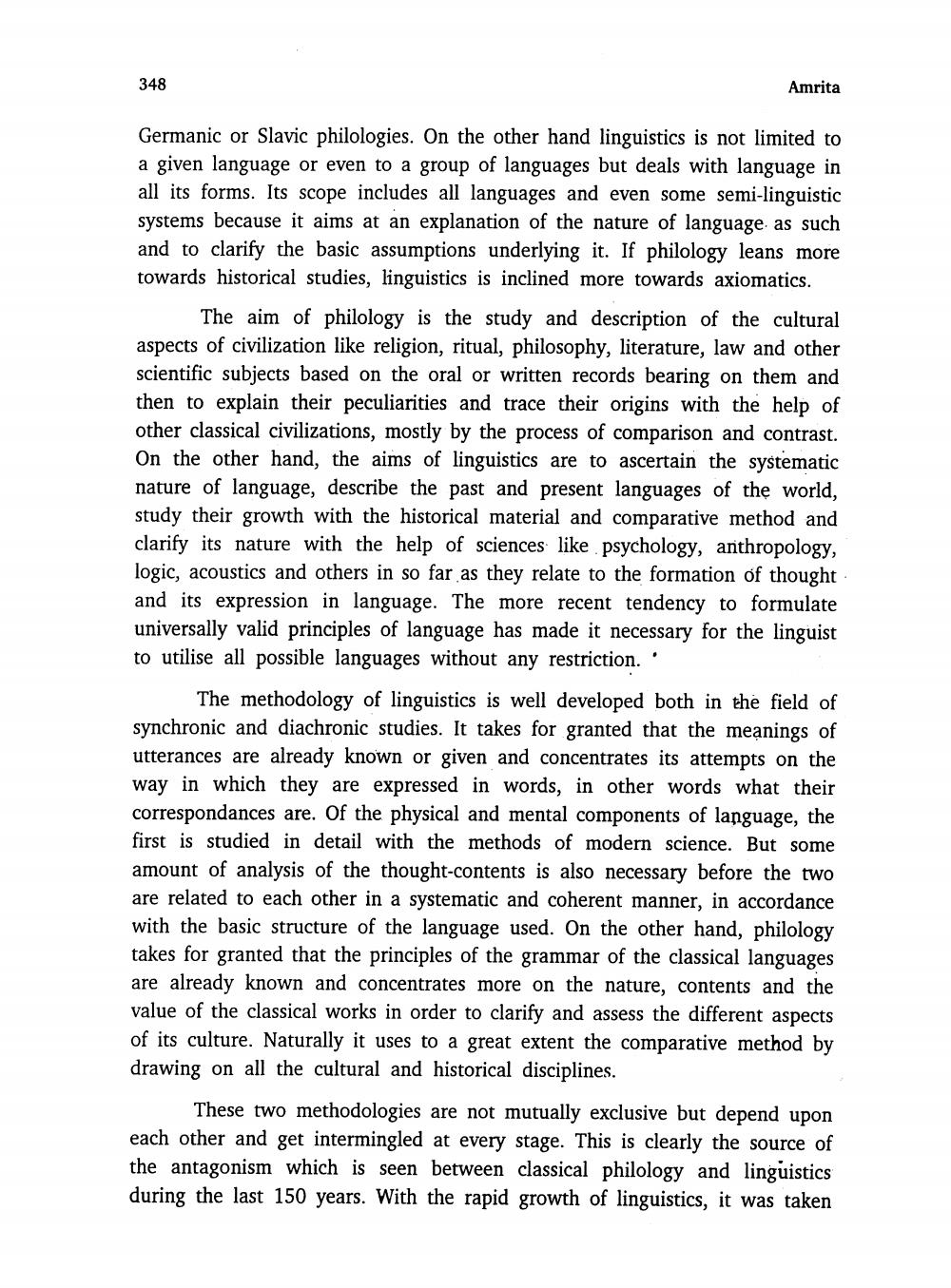________________
348
Amrita
Germanic or Slavic philologies. On the other hand linguistics is not limited to a given language or even to a group of languages but deals with language in all its forms. Its scope includes all languages and even some semi-linguistic systems because it aims at an explanation of the nature of language as such and to clarify the basic assumptions underlying it. If philology leans more towards historical studies, linguistics is inclined more towards axiomatics.
The aim of philology is the study and description of the cultural aspects of civilization like religion, ritual, philosophy, literature, law and other scientific subjects based on the oral or written records bearing on them and then to explain their peculiarities and trace their origins with the help of other classical civilizations, mostly by the process of comparison and contrast. On the other hand, the aims of linguistics are to ascertain the systematic nature of language, describe the past and present languages of the world, study their growth with the historical material and comparative method and clarify its nature with the help of sciences like psychology, anthropology, logic, acoustics and others in so far as they relate to the formation of thought and its expression in language. The more recent tendency to formulate universally valid principles of language has made it necessary for the linguist to utilise all possible languages without any restriction..
The methodology of linguistics is well developed both in the field of synchronic and diachronic studies. It takes for granted that the meanings of utterances are already known or given and concentrates its attempts on the way in which they are expressed in words, in other words what their correspondances are. Of the physical and mental components of language, the first is studied in detail with the methods of modern science. But some amount of analysis of the thought-contents is also necessary before the two are related to each other in a systematic and coherent manner, in accordance with the basic structure of the language used. On the other hand, philology takes for granted that the principles of the grammar of the classical languages are already known and concentrates more on the nature, contents and the value of the classical works in order to clarify and assess the different aspects of its culture. Naturally it uses to a great extent the comparative method by drawing on all the cultural and historical disciplines.
These two methodologies are not mutually exclusive but depend upon each other and get intermingled at every stage. This is clearly the source of the antagonism which is seen between classical philology and linguistics during the last 150 years. With the rapid growth of linguistics, it was taken




